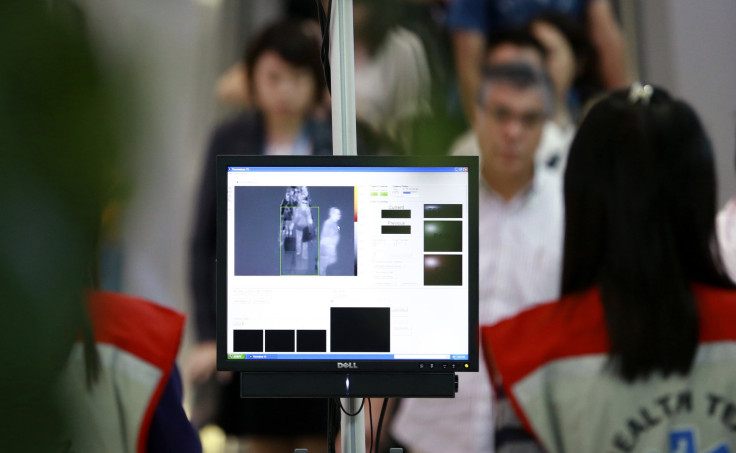CDC Could Quarantine US Citizens Who Refuse Ebola Screenings At American Airports

U.S. citizens who refuse to undergo screenings for Ebola at the five American airports that will start conducting them as early as this weekend could face weeks of quarantine, reports Yahoo News. Noncitizens could also face quarantine or be denied entry to the U.S. altogether.
The federal government announced Wednesday that passengers arriving from West Africa to the five busiest airports in the U.S. would undergo screenings that include temperature testing and completing a detailed questionnaire. According to officials, 90 percent of travelers from Guinea, Sierra Leone and Liberia enter the United States through the five targeted airports: New York's Kennedy International Airport, Washington Dulles International Airport, Chicago's O'Hare International Airport, Atlanta's Hartsfield-Jackson International Airport and Newark Liberty International Airport.
The Centers for Disease Control and Prevention has the right to "isolate, quarantine, or issue a conditional release order to any arriving person who is reasonably believed to be infected with or exposed to Ebola," CDC spokeswoman Barbara Reynolds told Yahoo News. "Refusal to be screened or to respond to public health questions would be factors to be considered in formulating a reasonable belief as to whether the individual may be infected with or exposed to Ebola."
A government official who wished to remain anonymous added that the CDC would most likely hold such passengers until they complied with the screening process, or for 21 days, which is how long the virus takes to incubate.
The CDC is allowed to take such steps under section 361 of the Public Health Service Act, which enables the federal government to help control the introduction or spread of a communicable disease. It also empowers the government to detain people who are infected or "reasonably believed" to be infected.
“CDC has delegated authority to apprehend, detain, examine, and conditionally release individuals with certain communicable diseases (including Ebola) that are specified in an executive order of the president,” said Reynolds.
© Copyright IBTimes 2024. All rights reserved.











